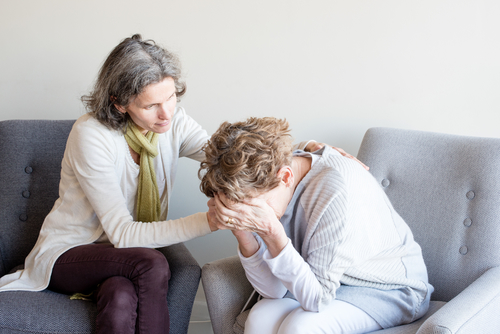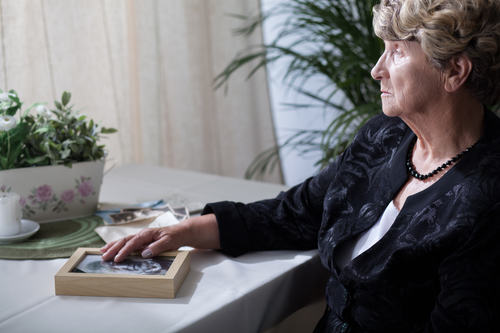
Loss is a part of life. When a friend experiences loss it’s hard to know what to do for them. Loss and grief are a private matter to some. It can be even harder if it’s a living loss, like maybe your friend’s mother has Alzheimer’s and now no longer remembers them. But you still want to help your friend. Here are the dos and don’ts of supporting a friend experiencing loss.

Do
- Express your condolences. A sincere “I’m sorry for your loss,” and a hug can make all the difference to someone.
- Stay in touch. Your friend might try to pull away during grieving, check in with them and see how they’re doing.
- Show you care through words and action.
- Be a safe place for them. If they come to you expressing their emotions, let them talk without judging or analyzing them.
- Listen to them. Ask them questions about what you can do to help and what they need.
- Do what they need. If a friend asks for help, do what they ask instead of what you think you should do.
- Give them opportunities to talk about those who passed. Share stories with one another instead of trying to ignore the person who is gone.
- Help them get the support they need. This may be professional help, let them know it’s a smart move and nothing to be ashamed of.
- Encourage them to take it slow when reentering the world. It can be easy for someone to jump right back into work after a loss, they may think they are done grieving. Tell them to take their time and not overwhelm themselves.
- Invite them out. Without any pressure, see if you can do a small, fun activity to get them out of the house and out of their head.
Don’t
- Don’t assume you know how they feel.
- Don’t use cliches when trying to comfort them. Just be supportive.
- Don’t say anything that can be taken as “hurry up.” Do not say, “You’ll get over it,” “Time heals all wounds,” “In time, you will have closure,” or any similar types of advice.
- Don’t give them advice if they don’t ask for it.
- Don’t compare your loss to theirs. It’s not a competition.
- Don’t try to do any quick fixes to take away their pain.
- Don’t take it personally if they pull away from you. They are sorting their emotions out and may want some alone time.
- Don’t take over the conversation. Let them talk.
- Don’t smother them with care. It can be easy to do since you want to help them, but they will need their space.
You can read more tips here.





